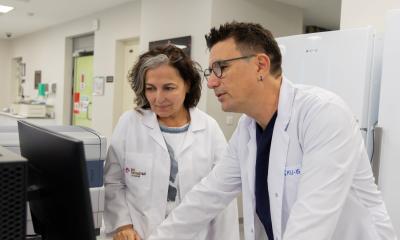Politics
Spain’s response to EU directive
Increasingly resistant bacteria are a global problem and require innovative action from all parties concerned, says Jesús Rodriguez-Baño, President of the Scientific Committee of the annual meeting of the Spanish Society of Infectious Diseases and Clinical Microbiology (SEIMC), which unfolded last May in Seville. EH asked him why the creation of a national plan has become necessary to tackle antibiotics resistance.
Report: Mélisande Rouger


‘The plan is a consequence of a directive of the European Union and is coordinated by every country; in Spain, the Spanish FDA is responsible for its management,’ explains Jesús Rodriguez-Baño. ‘It follows the concept of one health and includes a multidisciplinary plan involving doctors and pharmaceuticals. The idea is to regroup all our actions because the problem is multifactorial; therefore the solution must be factorial as well. ‘We aim to find a common solution to a global problem.
‘There are currently very important changes in our society. People travel more than any time of human history, not only for holidays or living, but also to receive healthcare. These migrations increase the risk of spreading bacteria. ‘Of course, bacteria are present in our food. Antibiotics are used in animals to increase their weight and make them larger. This technique is banned, but it is hard to control. Antibiotics are also used as a prophylactic technique to make sure one sick animal doesn’t infect the others. Resistance develops here as well and the meat becomes contaminated. Importing food from a country where resistance is strong can bring this problem to other countries. Bacteria are also present in the water, which can contaminate vegetable and plants.
‘Furthermore, the global population is growing older; people need more care and the number of nursing homes is rising. These environments are highly favourable to the spread of bacteria. ‘It’s no coincidence that resistance is coming now. It is a consequence of antibiotics use in humans and animals, the fast-paced development of many countries and ageing population. In a nutshell, it’s a consequence of globalisation. ‘We have to think of all these aspects and find new ways to address them. There’s no answer right now, we have to think outside the box.’
What measures will Spain take?
‘Surveillance will be central to the plan. Surveillance is a complex task because resistance is not homogeneously spread. If you do something superficially, you will not realise that an outbreak is occurring somewhere and you might not be able to contain it. We need to be able to detect outbreaks anywhere to prevent them from spreading.
‘We are working towards having reference labs in different areas of Spain so that every single lab can rapidly isolate the bacteria and send results to obtain an answer within 48 hours. In Andalusia, for example, one hospital receives alarms from everywhere else in the region and provides answers quickly to control transmission as early as possible.
‘As you know, Spain is very heterogeneous and this is why harmonising surveillance is an important part of the plan. The problem with having different communities is that management differs from one region to another.’
Do you expect improvements after November’s general election?
‘We have a very interesting situation right now in Spain. There have already been many changes following local elections earlier in May. I expect it will be challenging, because every time politicians change you have to start from scratch to convince them. However, at this point the work is very visible, so I’m rather optimistic.
04.09.2015





